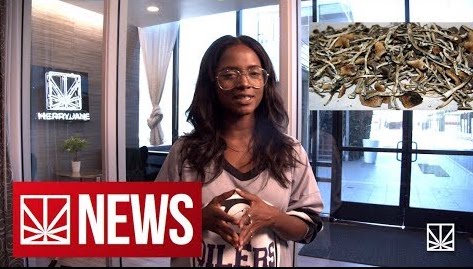In 2016, Florida became the first state in the South to legalize medical marijuana, but the growth of this new program has been stunted by constant legal battles between cannabis activists and government officials who have been trying to restrict the new program. The Sunshine State’s medical cannabis law was enacted by way of a voter-approved ballot measure, which amended the state constitution to allow patients with 10 qualifying conditions to treat their ailments with cannabis flower, edibles, or other approved products.
Within months, state lawmakers rewrote the voter-approved law into a vastly more restrictive program, banning the use of smokable or edible forms of cannabis, among many other restrictions. The activists who worked so hard to campaign for the ballot measure were outraged, and launched volley after volley of legal challenges against the state. This May, a state Circuit Court Judge declared the ban on smokable marijuana unconstitutional, ruling that lawmakers were overruling the wishes of the voters who approved the measure in the first place.
This week, another judge has ruled that several more aspects of the 2017 MMJ program revisions are in violation of the original constitutional amendment. The updated law imposes a limit to the total number of “medical marijuana treatment centers” within the state, but Leon County Circuit Judge Charles Dodson ruled that this “directly contradicts the amendment,” University of South Florida NPR affiliate WUSF reports.
Dodson also ruled that the new law violated the original amendment by mandating vertical integration within the industry, requiring each canna-business to handle all aspects of cultivating, processing, and dispensing marijuana. The original amendment required the state to license each of these activities separately. The new law also set aside a number of specific licenses for individual businesses meeting a number of criteria, which Dodson also found unconstitutional.
In his ruling, the judge wrote that these “limits directly undermine the clear intent of the amendment, which by its language seeks to prevent arbitrary restriction on the number of [medical marijuana treatment clinics] authorized to conduct business in the state,” WUSF reports. “The amendment mandates the availability and safe use of medical marijuana by qualifying patients.” Dodson set a deadline of October 3rd, one year after the state began issuing medical marijuana cards to patients, for the state to resolve these issues.
Dodson's ruling was issued in response to a case brought by Florigrown, a Tampa-based medical cannabis company who argued that the state's mandate of vertical integration violated the original amendment. Florigrown also requested an injunction to stop the state from issuing further licenses, but Dodson denied this injunction.
“The denial of the request for temporary injunction will allow the department to continue to work to implement the law so Floridians can have safe access to this medicine,” Florida Department of Health spokesman Brad Dalton told WUSF. The state will now be able to continue its plans to add to the 14 current licenses they have already granted, expanding the supply of medicine available to the state's qualifying patients.
If Dodson's ruling is not overturned, the state's patients are likely to see the range of cannabis products available to them expand exponentially. The ruling potentially allows an unlimited number of medical canna-businesses within the state, where insiders are projecting that the industry will reach $2.5 billion in annual revenue within a decade.
State Sen. Jeff Brandes told Politico that the ruling will likely force the state Legislature to rewrite the 2017 law to address these issues. “I think you’re going to see a completely rewritten law,” he said. “You’re also going to see the medical marijuana industry become completely upended." Other lawmakers believe that Dodson's ruling will be overturned, however. “The trial court ruling injected unnecessary uncertainty into the emerging medical marijuana marketplace,” State Sen. Rob Bradley said. “I’m confident that our appellate courts will uphold the constitutionality."
Legal experts agree that the battles over these regulations are far from over. “This looks like a big deal, but in reality there’s several more years of litigation before this matter will be resolved,” cannabis attorney John Lockwood said to WUSF. “At this point I don’t see any upcoming change in the industry due to this ruling.”











